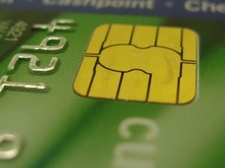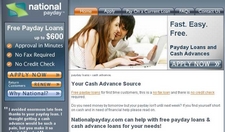There are indeed many ways that we simply throw good money away. In my previous post, I outlined seven ways that I have successfully thrown money away over the years. These are the ones I remember! I’m sure there are dozens more that I could think of. There are of course some ways that you can avoid events spiralling out of control, but each of them needs some self-control in that they all have inherent benefits, costs, and risks. But for short term personal loans needed urgently, there aren’t so many options. 
The Credit Card: This is perhaps the easiest way to borrow money, it’s available and easy to access. Just stick your card in the ATM, enter your password, retrieve. Then wait for the bill at the end of the month. The costs though are in the interest rates charged from the date of the loan, ATM fees and perhaps a worse credit score. Worse: this may not be an option if you are nearing your credit limit. The last thing you want do is incur late payment penalties on your Credit Card or overage penalties when you break your limit. In fact, having a safety limit for errors in billing is a good idea. Don’t run your credit card at 100% of your limit! 
The Friend at Work or Next Door: Again an easy option, and one which will rarely attract interest payments as friends are ‘helping each other’. Typically, you’ll hear people saying things like “I had an unexpected emergency. Can you lend me a few hundred dollars until payday?” Most friends will oblige for a ‘friend in need’… and that’s where the problems begin. You can’t pay it back on payday, then you begin to feel embarrassed to see your friend. Every time you see him or her, you feel guilty thinking “I have to pay you back, but I can’t”. Others report that lending money to a friend or borrowing from a friend impacts the relationship. Things never seem quite the same, because money entered the equation. I stopped lending to friends after the problems it caused.
 The PayDay Loan: A more recent entrant to the informal loan are the payday loans – a short term loan that is designed to bridge or cover the cashflow problems. With this facility now provided on the Internet, the application procedure could be quite quick and easy. Often these companies will provide next business day payment electronically. The payments are due (depending on the conditions of the loan) on the next pay day. The catch: it isn’t free. It’s not necessarily cheap either with fees that can run quite high. Most importantly, though, they are designed as short-term loans to cover short term problems. The fees and interest rates can be expensive, if these products are treated incorrectly. In some cases, though, clients become dependent on these kinds of loans; and can rack up large debts because they fail to read the fineprint or stick to their end of the bargain (the APR rates would make your eyes pop if you were borrowing for 12 months).
The PayDay Loan: A more recent entrant to the informal loan are the payday loans – a short term loan that is designed to bridge or cover the cashflow problems. With this facility now provided on the Internet, the application procedure could be quite quick and easy. Often these companies will provide next business day payment electronically. The payments are due (depending on the conditions of the loan) on the next pay day. The catch: it isn’t free. It’s not necessarily cheap either with fees that can run quite high. Most importantly, though, they are designed as short-term loans to cover short term problems. The fees and interest rates can be expensive, if these products are treated incorrectly. In some cases, though, clients become dependent on these kinds of loans; and can rack up large debts because they fail to read the fineprint or stick to their end of the bargain (the APR rates would make your eyes pop if you were borrowing for 12 months).
Personal Emergency Fund Each of these three methods allows you to get a small amount of cash to cover a cashflow crisis. Each of them has obvious benefits, costs and negative factors. Whichever you decide to use, there’s no doubt that setting aside a little money for your own personal ’emergency fund’ is probably the sanest, cheapest and most effective solution in the longer term. But that won’t help much if your bank account is flashing $0.01 right now. What do you do when you need to borrow some cash fast? Where do you go? What are your good or bad experiences? Do let me know!
![badcreditoffers-1[2]](https://investorblogger.b-cdn.net/wp-content/uploads/2008/10/badcreditoffers-12.jpg?iv=455)